The Importance of Rapid Testing Kits for Infectious Disease Management

Infectious diseases don’t send a warning text — they show up quickly and often spread even faster. Whether it’s COVID-19, the flu, RSV, or something less headline-grabbing but just as contagious, one of the best tools we have for slowing the spread is simple: rapid testing.
In this blog, we’ll explore why rapid testing kits matter, how they fit into infectious disease management (at home and in care settings), and what to look for when choosing the right one for your needs.
Because when it comes to health, knowledge really is power — especially when you can get it in under 15 minutes.
How Rapid Tests Work and What They’re Used For
Rapid tests aren’t just a COVID-era convenience — they’ve been around for decades and are now used to detect everything from influenza and strep throat to RSV and even certain sexually transmitted infections. And as technology improves, they’re becoming faster, more accurate, and more accessible.
So how do they actually work?
According to MedlinePlus, most rapid tests are designed to detect specific proteins or antigens that are part of a virus or bacteria. Some work by identifying the body’s immune response (like antibodies), while others detect genetic material (like rapid molecular tests). Either way, the goal is simple: get a quick result, usually within 10 to 30 minutes, so decisions can be made fast.
“Most rapid tests are done with a nasal or throat swab, saliva, urine, or blood — depending on what’s being tested for,” says MedlinePlus.
Unlike traditional lab tests that might take days, rapid tests deliver answers fast, which is crucial when time matters — like when isolating someone to prevent the spread or starting treatment before symptoms get worse.
And no, they're not just for pandemics.
A 2021 study published in the Journal of Clinical Microbiology (PMC) highlights that rapid diagnostic tests (RDTs) have been successfully used in hospitals, aged care, and community settings to manage everything from influenza outbreaks to group A strep infections and HIV screening.
Even here in Australia, as noted in The Sydney Morning Herald, rapid tests became part of everyday life during the COVID-19 pandemic — and now, they’re being adapted and expanded to monitor a wider range of infections.
What They’re Used For
Here are just a few infections commonly detected using rapid tests:
- COVID-19 (SARS-CoV-2)
- Influenza A & B
- RSV (Respiratory Syncytial Virus)
- Group A Streptococcus (Strep throat)
- HIV (screening purposes)
- Hepatitis B and C
- Malaria and dengue (in some global settings)
The key takeaway? Rapid tests aren't just for emergencies. They’re everyday tools that help caregivers, schools, aged care providers, and households respond faster, reduce uncertainty, and limit the spread of infection.
Who Benefits Most from Rapid Testing Kits?
Short answer? Pretty much everyone. But let’s break it down.
Rapid tests are like the smoke alarms of infectious disease — small, easy to use, and incredibly helpful when something’s brewing but not yet obvious. Whether you’re managing a busy household or running a healthcare facility, having the right tests on hand gives you the upper hand when things start to go sideways.
For Households and Home Carers
If you’ve ever had a child wake up with a runny nose on school photo day, you already know the stress of “Is this just a cold, or something worse?”
Rapid tests are a game-changer for:
- Parents of school-aged kids (who seem to bring home more germs than lunchboxes)
- Carers of vulnerable family members (Elderly parents, immunocompromised loved ones — you name it)
- Anyone who’d rather not wait days for results (Because let’s be honest, you don't always have the patience for lab queues)
With results in minutes, you can make fast decisions: keep the kids home, start treatment early, or breathe a sigh of relief and carry on.
For Healthcare and Aged Care Providers
In clinical settings, speed is everything — and rapid tests help streamline care, limit spread, and protect vulnerable patients from avoidable outbreaks.
Hospitals, aged care facilities, and medical clinics benefit by:
- Screening patients or staff before symptoms escalate
- Reducing pressure on lab services and emergency departments
- Supporting infection control policies (especially during flu season or respiratory outbreaks)
- Acting fast in high-risk settings like rehab wards, dementia units, or surgical departments
And when you’ve got multiple staff or patients to test, bulk rapid testing kits make supply management easier — and cheaper in the long run.
When and How to Use Rapid Tests at Home (For Families & Carers)
Figuring out when to reach for a rapid test can feel like trying to guess if that leftover curry is still safe to eat. (It smells fine… but do I want to risk it?) Same vibe.
The good news is that once you know the signs and how these kits work, rapid testing becomes one of the easiest ways to stay ahead of whatever bug is going around — and protect your household in the process.
When Should You Use a Rapid Test?
Here are the most common moments to break out a rapid test:
- When someone has sudden symptoms. Think fever, cough, sore throat, fatigue, or a mysterious runny nose that wasn’t there yesterday.
- After close contact with someone who’s unwell. Whether it’s school, day care, or a mate from work who “just had a tickle”, it’s worth testing before symptoms show up.
- Before visiting someone vulnerable. Heading to see grandma in aged care? Rapid test. Visiting a friend going through chemo? Rapid test. It’s peace of mind — and it’s respectful.
- When sickness is sweeping the house. If your household has a rotating cast of sniffles, a rapid test can help you figure out if it’s time to isolate, medicate, or simply hydrate and chill.
How to Use a Rapid Test (Without Panic)
Here’s the low-stress version of how to use most rapid tests at home:

1. Read the instructions — yes, even if you think you know how. Not all tests are created equal.
2. Collect your sample — typically a nasal swab, but saliva or throat swabs may also apply. (Pro tip: kids don’t love it, but a gentle and confident approach helps.)
3. Mix and apply — Add your sample to the provided liquid or cassette, then follow the timing instructions closely.
4. Wait and read the result — usually within 10–20 minutes. One line = negative, two lines = positive. (No lines? That test’s a dud. Try again.)
Most tests come with a visual guide, and if you're buying from us, our team is happy to walk you through how to use them safely and accurately.
Extra Tip:
Keep a few rapid tests in your medicine cabinet — like you would with Panadol or band-aids. Because by the time you need one, it’s often too late to go shopping.
Smart Supplies to Support Rapid Testing and Infection Control
Whether you’re managing sniffles at home or safeguarding vulnerable patients in a clinical setting, having the right supplies on hand helps you act fast, stay protected, and reduce the spread of infection. Here’s a selection of testing and preventative essentials that offer speed, safety, and peace of mind.
Rapid Testing Kits
1. Clungene COVID-19 Antigen Test Kit (5-pack)
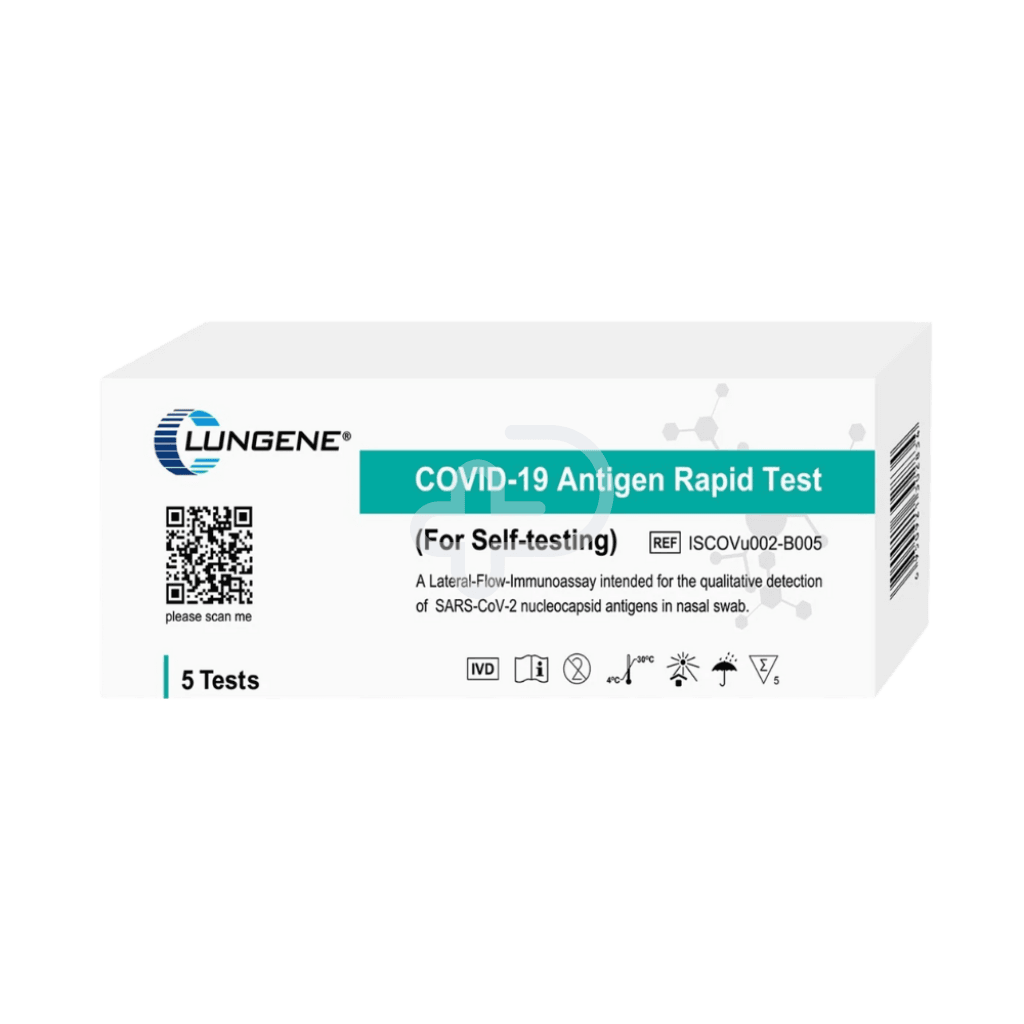
Available For Immediate Dispatch
This easy-to-use self-test is designed to detect the SARS-CoV-2 nucleocapsid protein — a key indicator of COVID-19 infection. It’s recommended for people showing symptoms within the first 7 days and offers quick results in 15 minutes.
Kit includes:
- 5x test cassettes
- Nasal swabs
- Extraction reagent tubes
- Waste bag
- Instructions for use
Why you’ll love it:
- TGA-listed and designed for home use
- Clear, simple instructions
- Results in minutes
- Excellent option for families, schools, or workplaces managing mild outbreaks
⚠️ Note: Positive results should be confirmed with a PCR test. Not recommended as a standalone test after 7 days of symptoms. ⚠️
Best for:
Households, support workers, small business staff, and travel screening.
2. Fanttest 4-in-1 Rapid Antigen Test Kit (COVID-19, RSV, Influenza A & B)
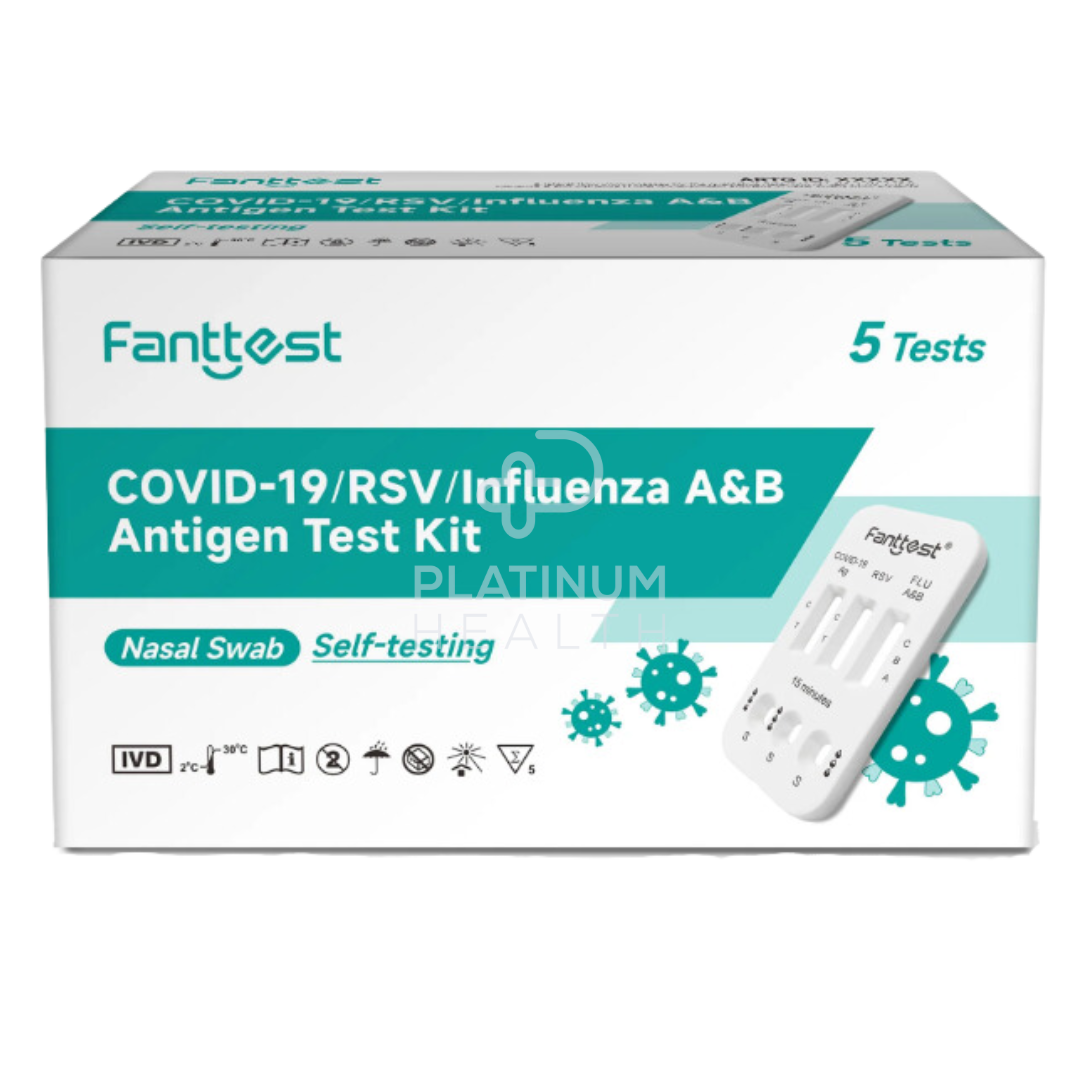
Cover all your bases with one simple kit. This 4-in-1 lateral flow immunoassay detects antigens from COVID-19, RSV, Influenza A, and Influenza B, helping you identify the true cause of respiratory symptoms quickly and accurately.
Why you’ll love it:
- Detects multiple viruses with one nasal swab
- TGA-registered and suitable for layperson use
- Sensitivity ≥91% and specificity ≥97% across all four pathogens
- Excellent performance in real-world usability studies
Best for:
Aged care facilities, clinics, schools, and households managing complex symptoms or vulnerable individuals.
Each kit contains all components required for testing and should be used at room temperature.
Prevention Essentials
3. A-Med P2 3-Fold Respirator
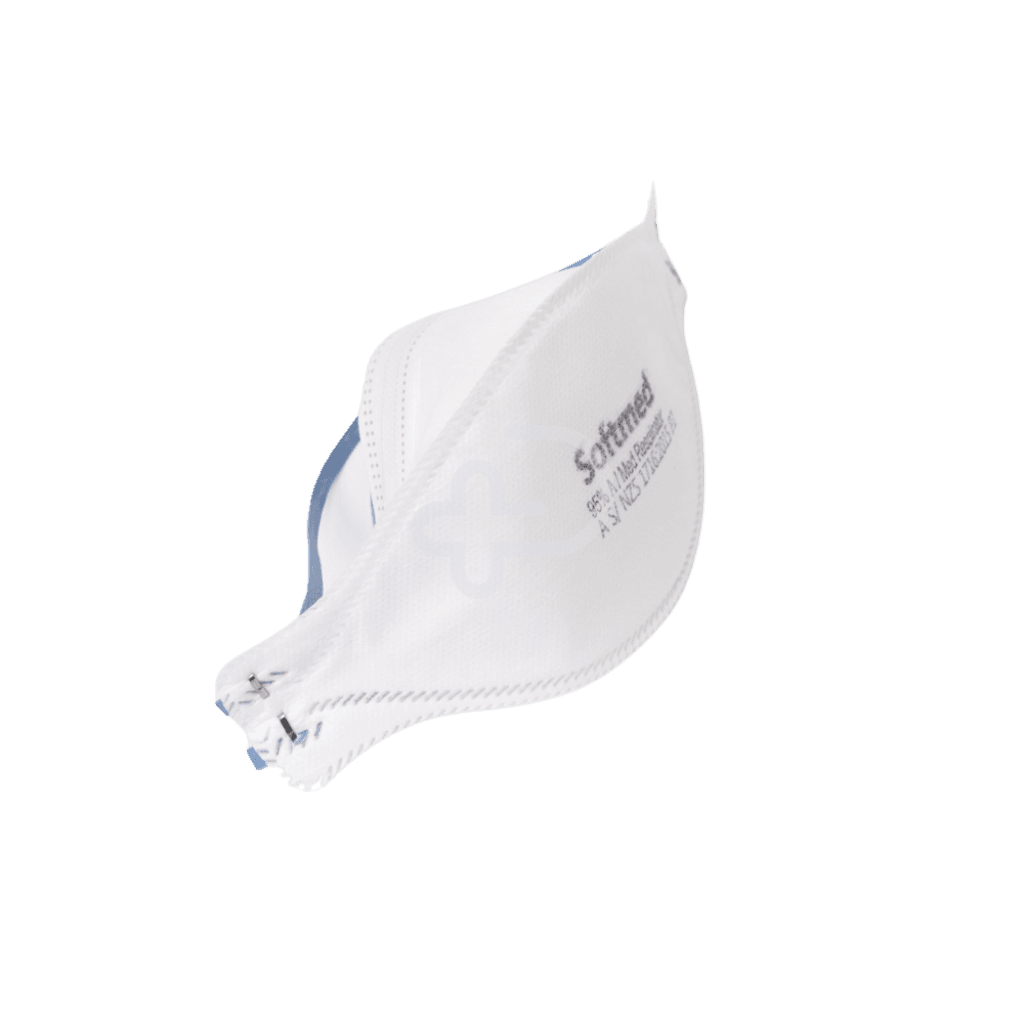
Looking for reliable, hospital-grade respiratory protection made right here in Australia? The A-Med P2 3-Fold Respirator offers exceptional defence against airborne particles, droplets, and contaminants — all in a lightweight, easy-to-wear design.
Why you’ll love it:
- ≥99.7% Bacterial Filtration Efficiency (BFE)
- ≥99.6% Particulate Filtration Efficiency (PFE)
- 160mmHg fluid resistance (Surgical-grade protection)
- Certified to AS/NZS 1716:2012, EN149:2001, SANS 50149:2003
- Low breathing resistance for all-day comfort
- Made in Australia and available in packs of 20
Best for:
Healthcare workers, aged care professionals, NDIS support staff, or anyone needing trusted, locally made respiratory protection in high-risk or clinical environments.
4. Safeguard+ Blue Nitrile Examination Gloves
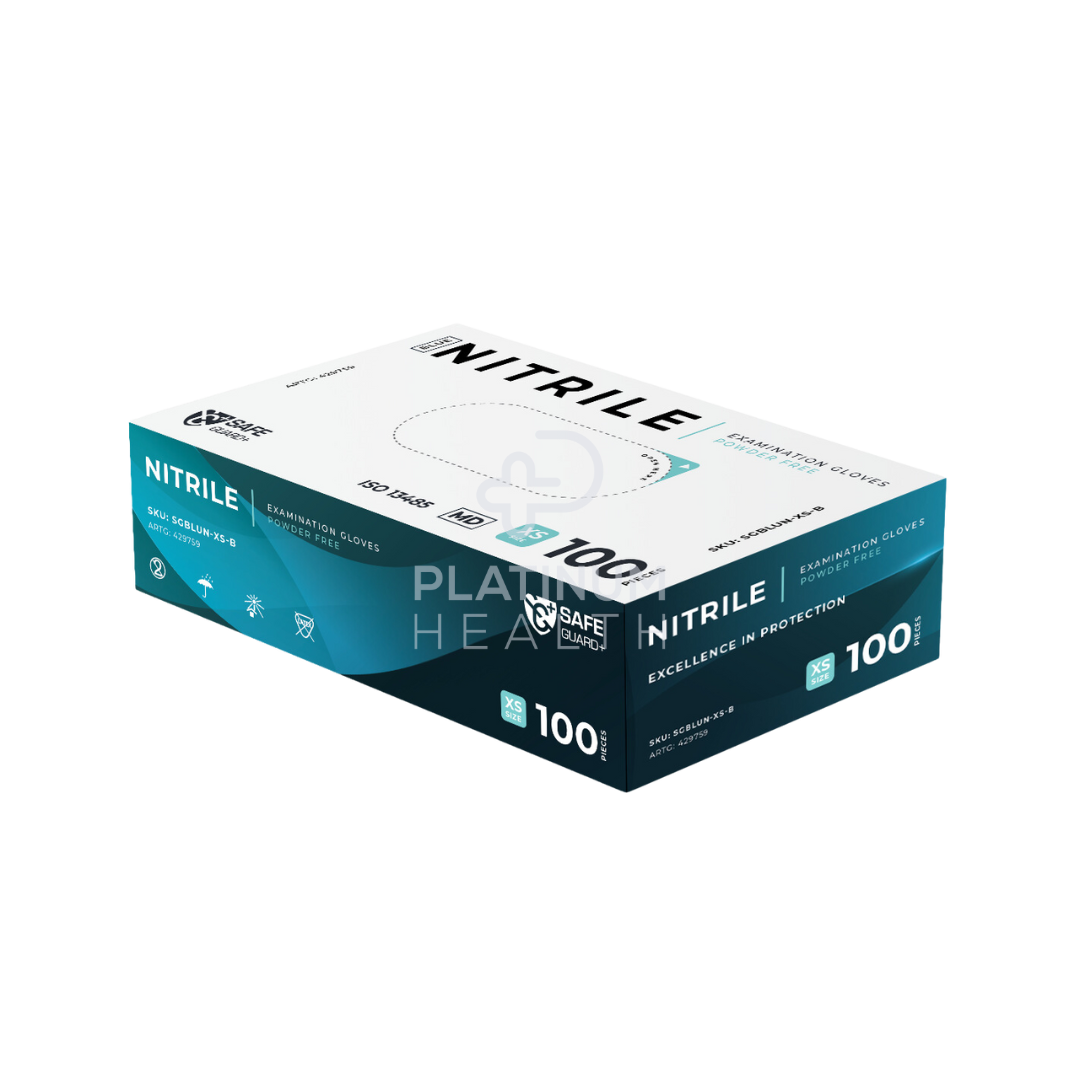
These medical-grade nitrile gloves are your go-to for clean, confident handling in any setting — from personal care at home to clinical environments.
Why you’ll love them:
- Latex-free and powder-free
- Textured fingertips for excellent grip
- Ambidextrous and easy to wear
- Comfortable and secure with a standard cuff fit
Best for:
Testing, hygiene tasks, caregiving, food handling, or anywhere contamination risk is a concern.
5. 3M Avagard Antiseptic Hand & Body Wash (500mL)
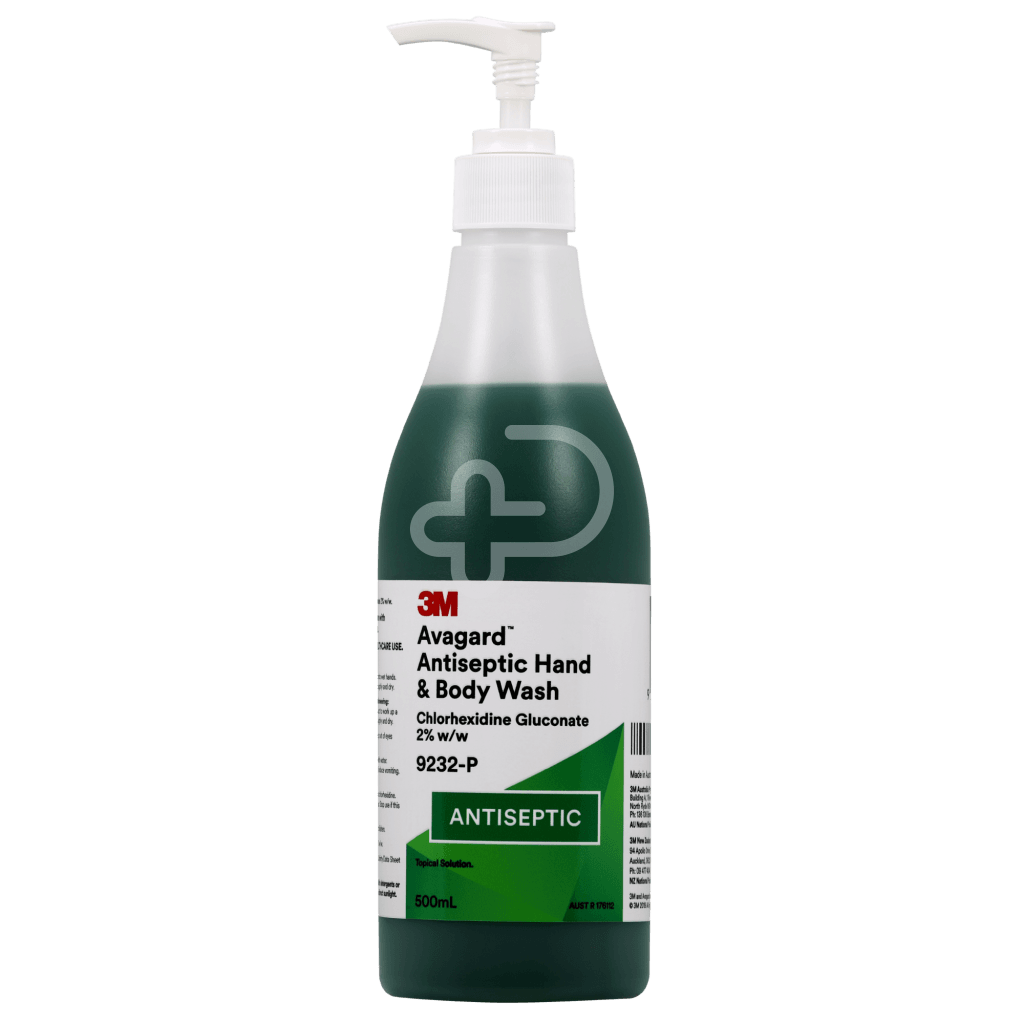
For Healthcare Professionals Only
This 2% Chlorhexidine Gluconate wash provides antimicrobial protection for both procedural hand hygiene and pre-surgical patient cleansing. It’s gentle on the skin but clinically strong where it counts.
Why it stands out:
- Cumulative, residual antimicrobial action
- pH balanced with moisturisers
- TGA listed (ARTG: 176112)
- Ideal for procedural prep and infection control
Best for:
Surgical teams, aged care professionals, or clinical staff performing high-contact care.
6. Aqium Antibacterial Hand Sanitiser – 1L Pump

Quick, effective, and moisturising — this hospital-grade hand sanitiser is perfect for high-traffic areas and everyday use. No rinse required, and no sticky residue left behind.
Why you’ll love it:
- Kills 99.99% of germs
- Non-sticky, fast-drying formula
- Contains moisturisers (Glycerol + Pro-Vitamin B5)
- Australian-made
Best for:
Offices, clinics, homes, entryways, travel bags — basically anywhere hands need quick disinfecting.
7. Halyard Isowipe Wipes
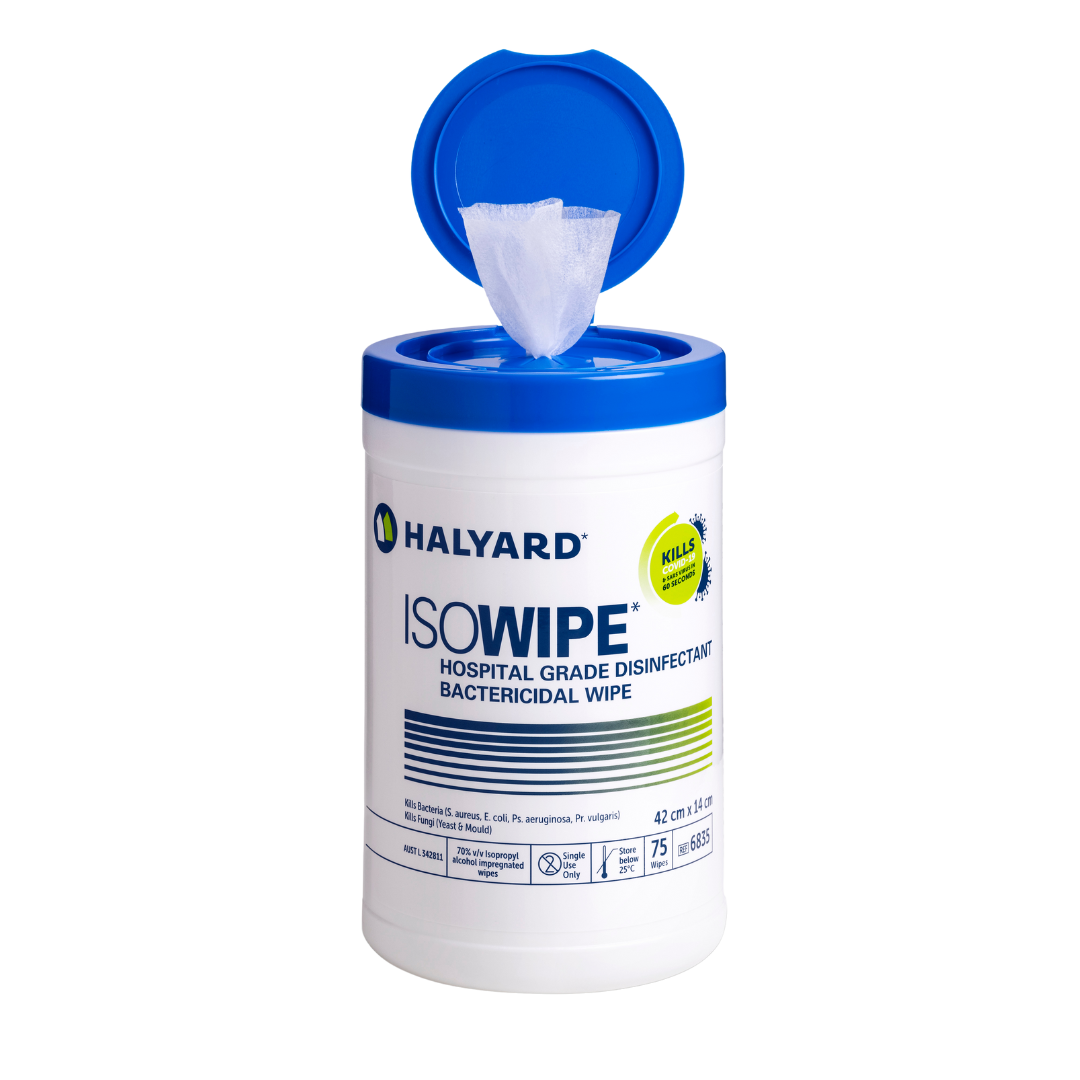
These aren’t your everyday wipes — Halyard Isowipe Wipes deliver hospital-grade surface disinfection in one quick swipe. Perfect for aged care settings, clinics, and workplaces where hygiene is non-negotiable, each wipe is saturated with 70% isopropyl alcohol, making them fast-acting and effective.
Why you’ll love it:
- Kills bacteria (like E. coli, S. aureus), fungi, and mould in just 10 minutes
- Hospital-grade disinfectant (ARTG 342811)
- Streak-free cleaning for hard surfaces and equipment
- Convenient canister packaging — 75 wipes per tub
- HACCP certified for food-safe environments
Best for:
Healthcare clinics, dental practices, aged care homes, hospitality, and any facility needing quick, reliable disinfection without mixing sprays or handling liquids.
Visit Our Epping Store — Let’s Talk Tests (and More)
Prefer to chat face-to-face? Want to see which rapid test kit or infection control product actually feels right before you commit? We’ve got you.
At our Platinum Health Supply showroom in Epping, Victoria, you can browse our full range of rapid antigen tests, masks, gloves, sanitisers, and more — and talk with our friendly team about what’s best for your needs.
Whether you're a parent prepping for flu season, a clinic sourcing PPE in bulk, or somewhere in between, we’ll walk you through your options with zero pressure and real support.
📍 Where to find us:
Unit 2/51 Trafalgar Road, Epping VIC 3076
🕘 Opening hours:
Monday to Friday: 9:00 AM – 5:00 PM
Need something urgently? Can’t make it in person?
You can always shop online or call our team for product advice, quotes, or bulk orders.
Because sometimes, the fastest solution isn’t just the kit — it’s the people helping you choose the right one.
Check Your Funding Options
Some rapid tests and infection control products may be eligible for coverage under private or government funding programs — including the NDIS, My Aged Care, DVA, or private health insurance.
Not sure what’s covered?
Visit our Funding Programs Guide or speak to your plan manager or support coordinator to see what you can claim.
Important Disclaimer
Platinum Health Supply Group is a healthcare supplies provider, not a hospital, medical clinic, or diagnostic service. We do not offer medical advice, diagnostic interpretation, or clinical treatment. Our blogs are written for general education and support, based on publicly available information from government bodies, academic journals, and credible health sources.
The information in this blog is designed to help readers understand the role of rapid testing kits in managing infectious diseases. It does not replace advice or assessment by a qualified healthcare professional.
Always consult your GP, nurse, or healthcare provider if:
- You are unsure about symptoms, test results, or how to use a rapid test
- You or someone in your care is unwell or has underlying health conditions
- You are seeking confirmation of a diagnosis or require treatment
Use of rapid antigen tests should always follow manufacturer instructions, and test results should be interpreted with caution.
- A negative test does not necessarily rule out infection, particularly if symptoms are present or exposure has occurred.
- If you receive a positive result, follow your state or territory’s public health guidelines and seek medical attention as needed.
You can also reach out to:
- Healthdirect Australia – 24/7 advice line: 1800 022 222
- Your local GP or nurse
- Your state or territory health department
